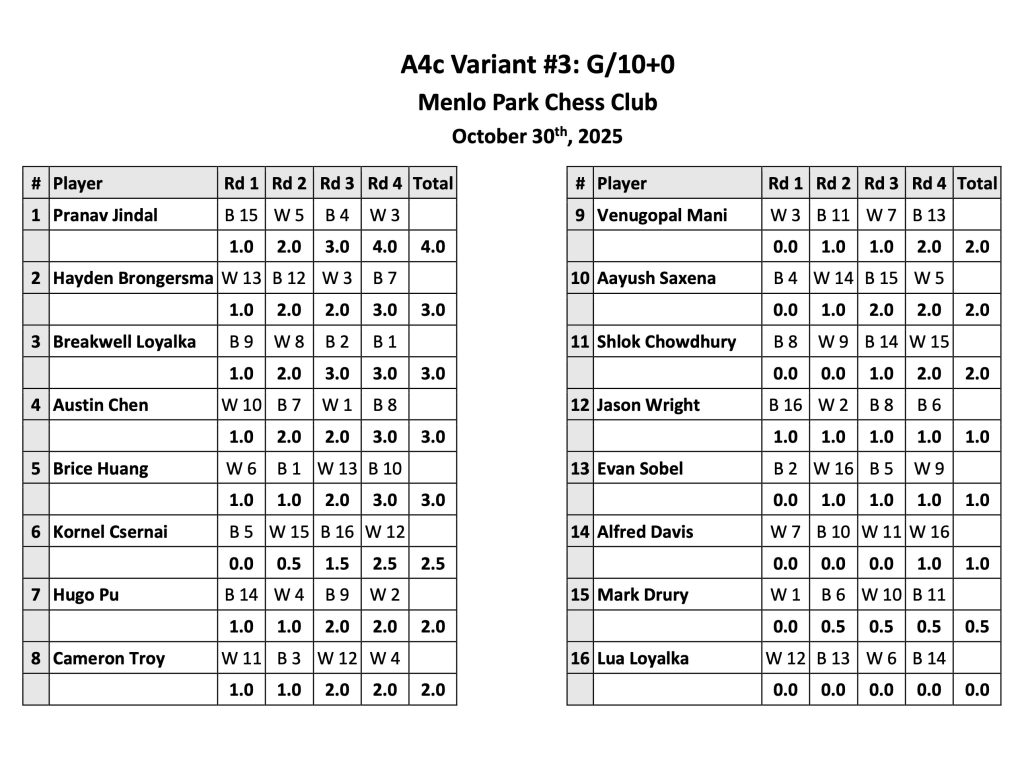Last Thursday we dabbled yet again in the A4c variant with four rounds of G/10+0 action and it was surprising this time around how many matches went to the third game, even in the earlier rounds. I had given some thought to trying G/7+0 given a faster time control was suggested by the creator of this variant yet, given how poorly I performed with ten minutes on my clock, I’m perhaps fortunate we stuck with the longer time control (though it made little difference in my results). A few others bemoaned the seeming quickness of G/10+0 in this format but I don’t know that it would make sense to use anything longer. In any case, congratulations to Pranav Jindal for sole first place and for his perfect score in this event and to Hayden, Breakwell, Austin and newcomer Brice Huang for their T-2nd result with 3.0 out of 4 (full results are in the attached image).
Somewhat embarrassingly, in my second-round match with Kornél Csernai, we reached game three with me up 1.5-0.5 and I promptly ran out of time in the third game, laboring under the delusion that the worst I could do was draw the match, never mind the result of that last game. We recorded the draw and moved on to the next round but it finally dawned on us after the tournament that Kornel should have received the full point — I needed to resign the third game with time still on my clock to secure the half point, it seems (something we’ll need to run by Alaric the next time we see him). Apologies again for cheating you out of that half point, Kornel! 🙂
Our Autumn Double-Round Quick-Rated Quads also wrapped up last week and the full results can be found on the associated tournament page. Congratulations to Hayden Brongersma, Breakwell Loyalka, Austin Chen, Caleb Leong and Saveen Sahni for the excellent performances in their respective groups and I hope to submit the quads for rating as soon as we resolve one expired US Chess membership. On a personal note I learned that, as bad as I am at time management in A4c chess, I’m even worse in these G/15;d5 games and was lucky to scrape the lone half point from Hugo Pu in our second game (it occurred to me that he may have gifted me that draw given it was all he needed to secure second place in our quad). Poorly as I did the chess was still enjoyable and I’m glad to have played, never mind that my Quick rating is quickly heading to three digits.
Note that our Club Championship begins tomorrow evening and runs through December 11th, something which will supplant the free, unrated blitz tournaments normally run on casual evenings. We may still have a skittles room set up for casual play but that won’t be certain until the night of each round. Please feel free to stop by the club to spectate the club championship games if you are not playing, of course, and have a great Holiday season if we won’t see you until next year! Regards,
Mark Drury

